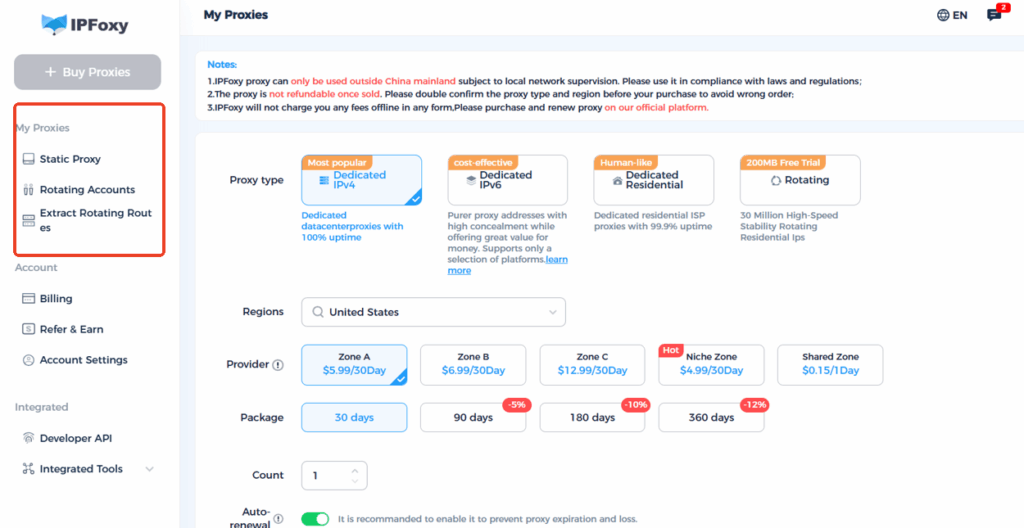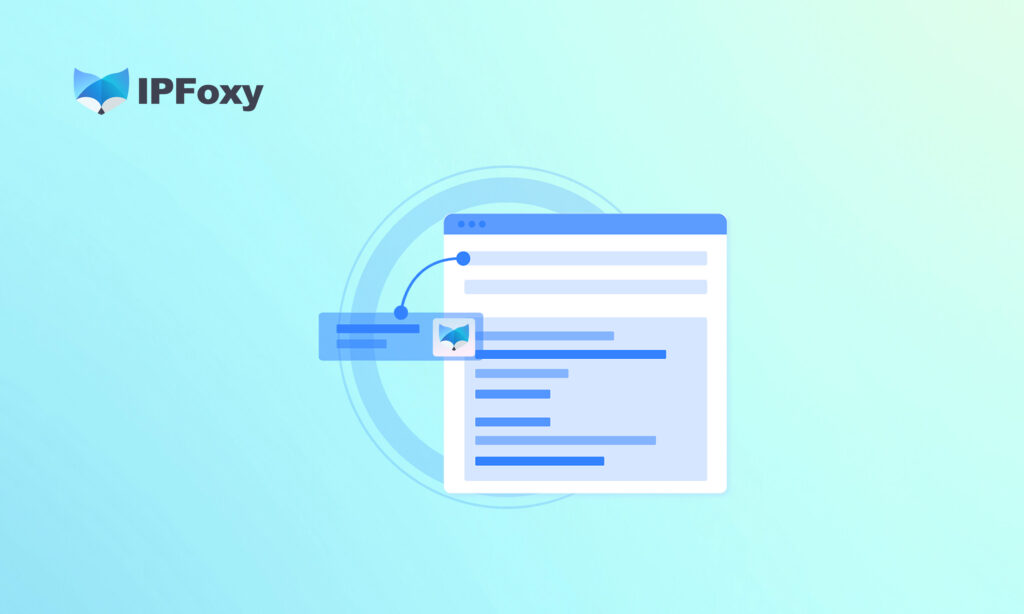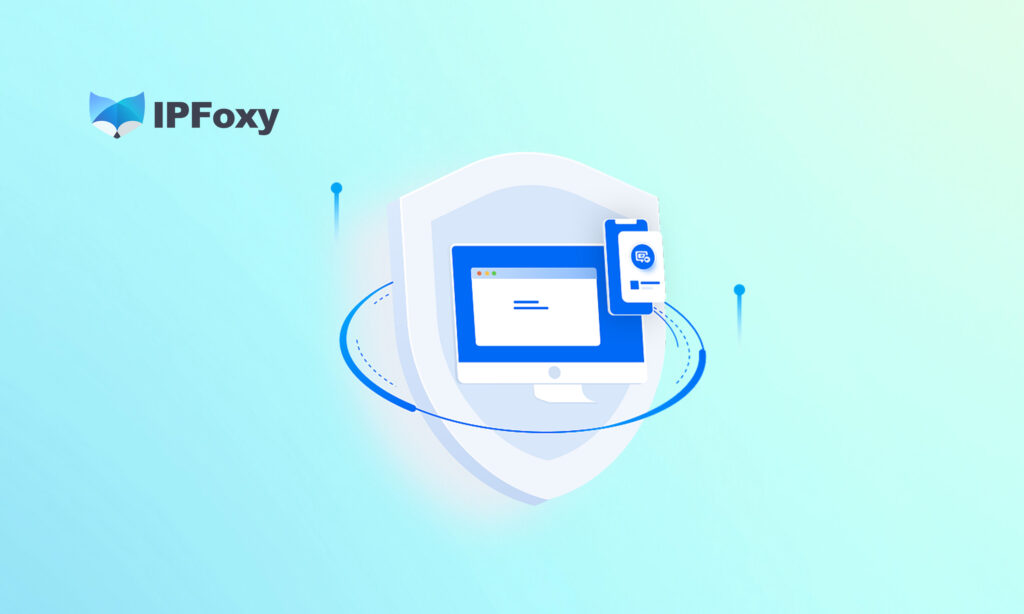In online operations, a proxy is an essential tool that helps protect anonymity and bypass platform restrictions. Whether you’re managing e-commerce stores, running social media ads, or optimizing SEO, using the right proxy can make your workflow smoother and more efficient.
Proxy can generally be divided into two main types: Dedicated Static Proxy and Rotating Proxy. Let’s look at their differences, advantages, limitations, and how to choose the best one for your needs.
I. Rotating Proxy
1. Definition
A Rotating Proxy uses IP addresses that change periodically. Each time your device connects to the network, it’s assigned a different IP address from an IP pool. This rotation helps mimic real user behavior and reduces traceability.
2. Advantages
- High anonymity: The constant change of IP addresses makes it difficult for platforms to trace or identify your real location, improving privacy protection.
- Geo flexibility: You can easily switch locations as needed, supporting local operations or regional targeting.
3. Limitations
- Connection instability: Frequent IP changes may cause unstable connections or login issues.
- Session limits: Rotating IPs are not ideal for operations that require persistent sessions or long-term logins.
4. Recommended use
Rotating proxy are suitable for web scraping, SEO monitoring, and daily social media management, where frequent IP changes simulate natural user activity and reduce detection risks.
II. Dedicated Static Proxy
1. Definition
A Dedicated Static Proxy maintains the same IP address over time. It includes two main types: Static Datacenter Proxy and Static ISP Residential Proxy.
- Static ISP Residential Proxy use real IPs assigned by ISPs, offering long-term stable connections.
- Static Datacenter Proxy come from data centers and act as a protective layer between your real IP and the internet, keeping your true identity hidden.
2. Advantages
- High stability: The IP remains constant, ensuring a reliable and consistent connection—ideal for long-term operations.
- Trustworthy identity: Static proxies often appear more legitimate to platforms, helping reduce account verification or security triggers.
3. Limitations
- Limited flexibility: Since static IPs are tied to fixed locations, they’re less adaptable for regional operations.
4. Recommended use
Dedicated Static Proxy are best for store management, account maintenance, and advertising activities that require stable, secure environments.
They help avoid login anomalies or “suspicious activity” alerts caused by frequent IP switching.
III. How to Choose
Choosing between Rotating and Dedicated Static Proxy depends on your business goals:
- For dynamic, multi-session tasks—choose Rotating Proxy.
- For stability-focused, long-term operations—choose Dedicated Static Proxy.
IPFoxy provides both proxy types and offers free testing, helping you build a safer and more efficient online setup.

IV.In short
Understanding the differences between rotating and static proxies helps you choose smarter. Whichever you use, always test first to ensure security and performance.


